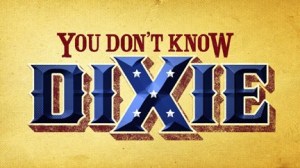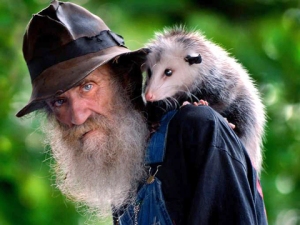Recently, The History Channel (THC) televised an hour-long special entitled You Don’t  Know Dixie. Most historians haven’t come to expect much history from THC—a channel that is better known for airing shows like Ice Road Truckers and Swamp People. Since I am interested in popular representations of the American South, I tuned in and what I observed didn’t change my mind about how the South and southerners continue to be represented as stereotypes.
Know Dixie. Most historians haven’t come to expect much history from THC—a channel that is better known for airing shows like Ice Road Truckers and Swamp People. Since I am interested in popular representations of the American South, I tuned in and what I observed didn’t change my mind about how the South and southerners continue to be represented as stereotypes.
On the one hand, message boards and even a Facebook page for the show suggest that it has a solid fan base—at least among southern whites. For most of them, You Don’t Know Dixie doesn’t trade in negative stereotypes about the region and that’s reason enough to like the show. This is understandable given how the popular media can often showcases the region as a backwater.

And yet, there were stereotypes and much that was problematic about the program. You Don’t Know Dixie is heavy on trivia and relies on “well-known southerners” like Ty Pennington, Trace Adkins, and Jeff Foxworthy to tell us “hidden truths” about the region, with a couple of academics thrown in to make it legitimate. Well, them and Barney Barnwell, a fiddler and hillbilly moonshiner whose speech required subtitles.
Employing the term “Dixie,” rather than “South,” and borrowing from the Confederate battle flag to illustrate the “X” in the show’s title is an indication of its focus. The overarching message is that southerners (read: white) persevere in the face of outside challenges. Southern women don’t make the cut, and African Americans cook well or sing the blues. While not a reality show per se, it has the same quality, and the message of the program is reduced to a Hank Williams, Jr. song—a country boy can survive.
It’s no surprise that historians hated it, which they made clear in a discussion on H-South. And yet, the show will pass for “good” information about the region and THC may even purchase more episodes from North South Productions, the company that developed the program. So what’s a southern historian to do except complain? We could begin by doing a better job of engaging the general public with our scholarship. And I would argue that we should engage in a serious discussion about popular culture rather than ignoring it as too low brow to warrant our attention.

Excellent post Karen,
As a “book learned” Southerner I face this dilemma all the time.
I love Southern pop culture (and take it seriously) yet what passes for “Southern pop culture” is flat out garbage.
I hit this in my last post to some degree with country music, although there was a nice piece in American Spectator about the lack of substance in modern country. Modern country music embodies in telling the world “how southern” and “how country” one is, precisely because musically and lyrically it’s not really country.
So too do shows like you mentioned, the comedy of Jeff Foxworthy, or Cracker Barrel. When such people proclaim what my old professor at Ole Miss Ted Ownby called “t-shirt Southerness” it’s because they really deep down aren’t that Southern (read: are just suburbanites like everyone else) anymore.
If anything the show you mentioned (and I haven’t seen it) is like a typical “Yankee” view of the South or rather “what Southerners want” to hear about themselves. Like the music of Trace Atkins (and others) it’s “focus group” Southern. Pseudo Southern, Feaux Southern….in short crap.
There’s a reason I prefer Hank Williams Sr. to Hank Williams Jr. And that is substance. Southern music, Southern literature, art, cooking, etc is among the finest in the world. Yet it’s very success and ability to “cross over” has watered it down much like generic pop culture has watered down other “ethnic” contributions. Perhaps it’s inevitable.
In any case I will continue to change the channel whenever Larry (the Nebraskan) Cable Guy is on and prefer George Jones to Jason Aldeen, and Prince George BBQ to Bob Evans.
– Mark
[…] This article is cross-posted from Pop South. […]
[…] NorthSouth productions, with offices in New York, Los Angeles, (and Knoxville?), produces this show and others in the greater Atlanta area, including Say Yes to the Dress, where a strong southern accent seems to be a requirement. The company also produced You Don’t Know Dixie, a show that promoted southern stereotypes, as I’ve written about previously. […]
The South is, as one of my brothers said, “a veritable latticework of webs” — that is, a culture of mixed, even contradictory, realities. Both sides of my family are from Mississippi since before Mississippi was a state. I grew up in Jackson most of my life, though I was born In Oxford where my family has deep roots. Like you, Mark, I too am a “book learned” Southerner. Asked to define exactly what the South is throws many of us Southerners into diverse states of confusion, mild to severe. From what or whose perspective?